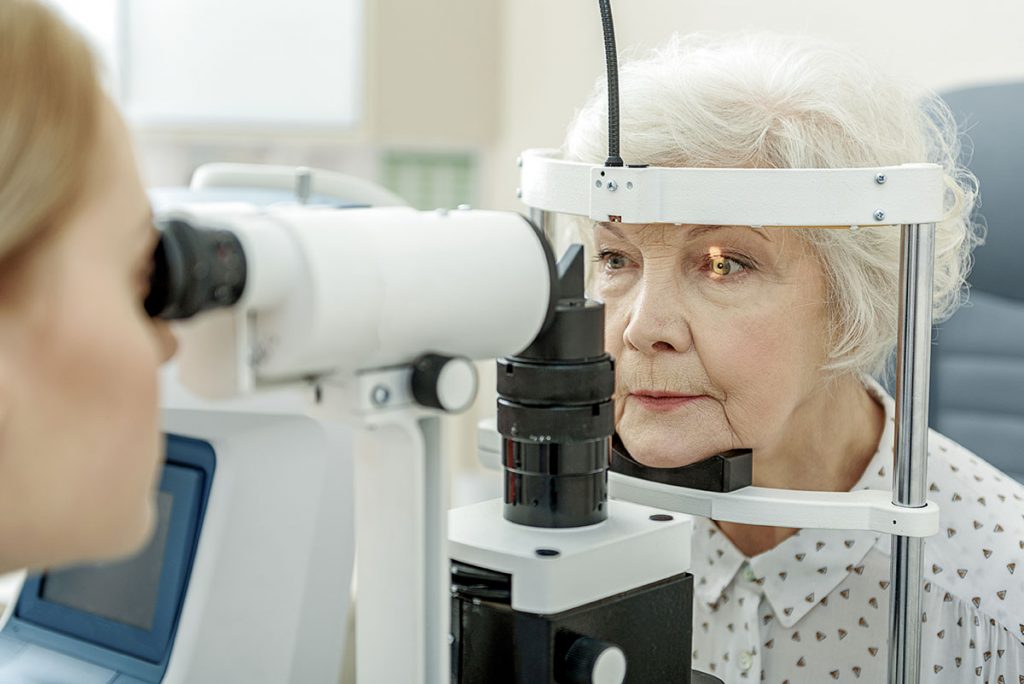What is a Diabetic Eye Exam?

During a diabetic eye exam, the doctor evaluates your retina and retinal blood vessels—the two areas of your eyes most affected by diabetes. During the exam, your vision specialist will first gather any relevant information in terms of your medical history and then have you read a standard eye chart. Afterwards, a series of tests are performed, including a retinal exam, pupil dilation and a retinal blood vessel test.
Since diabetes can negatively affect your eyesight, you should schedule a routine eye exam with a qualified vision specialist here in west Florida. A thorough eye exam can help your doctor identify potential vision problems before they worsen. By being proactive in terms of your eye care, you can ensure healthier vision in the future.
Why You Should Schedule a Diabetic Eye Exam
If you have diabetes, your eyes can be vulnerable to a wide range of disorders and conditions. These include:
- Glaucoma
- Cataracts
- Macular edema
- Diabetic retinopathy
If undetected or left untreated, diabetes-related eye conditions can lead to visual impairment or permanent vision loss. But with early detection, suitable treatment and intelligent blood sugar management, you can maintain healthy vision. In the vast majority of cases, diabetic eye exams can play a vital role in the early detection of eye conditions.
When to Schedule Your First Eye Exam
When to schedule your initial and subsequent eye exams will depend on whether you have type 1 or type 2 diabetes.
Type 1 Diabetes
If your doctor has discovered that you have type 1 diabetes, you should schedule an eye exam within three to five years of your diagnosis. Doing so will help you detect any early symptoms of potential eye conditions that may develop over time.
Type 2 Diabetes
If your doctor has detected type 2 diabetes, you should schedule an eye exam as soon as possible following your diagnosis. Type 2 diabetes is typically more severe than type 1 and can lead to a more rapid onset of vision problems.
After your initial diabetic eye exam, it is advisable to arrange a follow-up exam at least once a year. If you experience symptoms involving impaired vision or any other problematic eye conditions, do not delay. Schedule an eye exam immediately.
What Happens During a Diabetic Eye Exam?
Here is what you can expect during a diabetic eye exam:
- If it is your first visit, you will need to provide your medical history, along with any available background on vision issues.
- Your doctor will ask you to read a standard eye chart.
- The doctor will perform a retinal exam using an instrument known as an ophthalmoscope, which makes it possible to view the back of your eye.
- The doctor will administer drops to dilate your pupils and use a special light called a slit lamp to view the retina.
- A test called fluorescein angiography may be used to reveal changes in the structure and function of the retinal blood vessels. For this test, your doctor will inject a fluorescent yellow dye into your bloodstream and, using a special camera, photograph your retina as the dye illuminates the blood vessels.
- During a diabetic eye exam, your doctor will also check your eyes for cataracts and signs of glaucoma.
A diabetic eye exam usually takes one to two hours to complete. However, your visit may last longer if your doctor requires you to take any further exams.
Schedule an Eye Exam Today
Contact Gulf Coast Vision Center today at one of our Pace, Milton, Crestview or at our Pensacola locations on Nine Mile and in East Hill to schedule a comprehensive eye exam.
